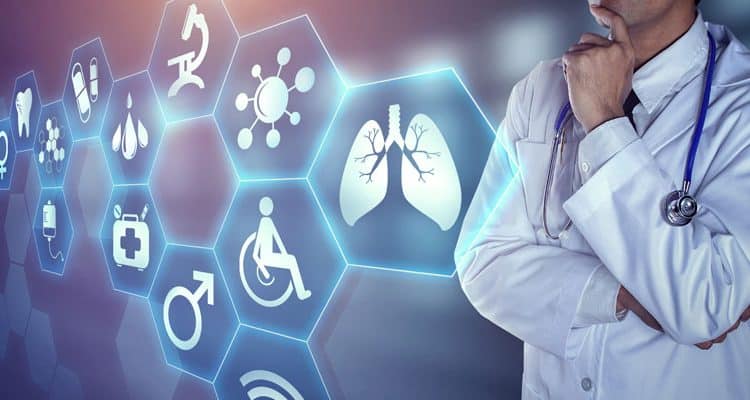‘Make in India’ initiative is pushing Indian medical devices sector to become self-reliant to actualise honourable Prime Minister’s Atmanirbhar Bharat Mission
There is hardly any sector or industry unaffected by COVID-19. And the medical devices industry propelled by technology (MedTech industry) is no exception to this. A discussion about the current trends; challenges and opportunities in ‘MedTech Industry’; optimising productivity through collaboration and the role of ‘Make in India’ initiative in making India self-reliant, ‘India Med Tech E-Summit 2020 was organised by HEAL Health Connect Solutions in association with ESI MedTech Solutions and the knowledge partner HEAL Foundation on November 19, in media partnership with Express Healthcare.
Speaking on the reduced dependency on imports and making India self-sufficient through ‘Make in India’ initiative during the India Med Tech E-Summit 2020, Parag Varshney, Director, International Institute for Human Development, India said, “Since very few medical devices are made in India and we need to increase it. For this, one of the essential things required is that ‘Academia’ and ‘Industry’ need to collaborate with each other so that right kind of ‘Research & Development’ can be available to the institutions, which in turn will help manufactures to adopt the new technology and innovation to produce efficient and cost-effective medical devices suitable for the Indian environment. The academia-industry partnership will help reduce the dependency on imports and make India self-sufficient through ‘Make in India’ initiative, also making India an attractive destination for manufacturing.”
Moderating the E-Summit, Rajiv Nath, Managing Director, Hindustan Syringes & Medical Devices, and Forum Co-ordinator, AiMeD said, “Academia and industry collaboration is good for incremental innovation in the field of manufacturing devices and competitive advantages, but to make a completely new product, it would be prudent to reach out to the foreign manufacturers and do technical collaboration and licensing with them. By virtue of their vast experience, we will be able to make innovative products and also optimise our production. This way, we will be able to realise our honourable Prime Minister’s Atmanirbhar Bharat dream.”
Chairman of the organising committee ‘India Med Tech E-Summit 2020’, Dr P Siva Kumar, Managing Director, ESI MedTech Solutions said, “COVID-19 has shaken the world causing enormous hardship to our lives and livelihood. There has been severe stress on healthcare systems across the world. India is way behind in terms of the allocation of funds for healthcare. The key component is the medical technology that drives the healthcare wherein India depends largely on imports of medical devices, making it less accessible and affordable. We need to improve our technology and encourage ‘Make in India initiative to become self-reliant to realise the dream of our honourable Prime Minister, Atmanirbhar Bharat. In the medical devices industry, three things are very critical – ‘Make in India’ should be the focus; trends and opportunities in medical technology and reducing the challenges and opportunities in medical devices.”
While speaking on the current state of technology and infrastructure in India at the India Med Tech E-Summit 2020, Dr Taslim Arif Saiyed, CEO & Director, The Centre for Cellular & Molecular Platforms (C-CAMP), said, “As far as the current technology and infrastructure in India is concerned, we need to scale it up and support it. We are largely involved in innovation and it is absolutely mind-boggling to see there is innovation in medical technology. In COVID pandemic, we have learnt how to bring innovation. We have done a fantastic job in leveraging medical technology, however, more innovations are required wherein young talented innovators are there to placate the demands. Our diagnostic capabilities have increased. This capacity building will help us in the future, and we will do well. We are moving up in the value chain and doing things right. We need to scale up the opportunity and bring high quality products.”
Speaking at E-Summit, Dr Nilesh Shah, President and Chief of Science & Innovation, Metropolis Healthcare, said, “The pandemic has brought in so many difficulties for us and we faced lots of challenges. Many times we did fail to meet the demand for testing. There were lots of regulatory challenges. One of the biggest challenges was the shortage of staff. Logistics were unavailable, the problem in data management was also there. For meeting the current demands and future requirements, we need to have small to medium innovations. Collection of samples is the big challenge now. But, recently, USFDA has just approved wherein a patient can do testing at home. This is a sigh of relief for the patients.”
“There is an intense need for medical technology as well as medical devices to ease healthcare delivery. Especially during the COVID-19 pandemic, medical technology and medical devices have been the key components and also played a pivotal role in tackling it. The medical technology needs to be redefined from a global perspective keeping in view the local accessibility and demand. Digital technology has the potential to unleash the problems of medical technology and a great help in bringing innovation. Clouds, e-Hospitals, AI Machine Learning and Telemedicine are some living examples of digital technology in healthcare delivery,” said Amit Mohan, Chief Operating Officer, LCS Digital & Inside Sales, GE Healthcare, (South Asia).
- Advertisement -


